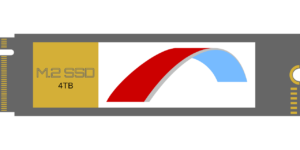 Any business owner will tell you that it can be frustrating trying to keep up with the rapidly changing technology world. Computers and network equipment can become obsolete within a few years of purchase, and there are constantly new options and upgrades to consider. It can be difficult to sort through those options and determine which upgrades are worth it and which are not.
Any business owner will tell you that it can be frustrating trying to keep up with the rapidly changing technology world. Computers and network equipment can become obsolete within a few years of purchase, and there are constantly new options and upgrades to consider. It can be difficult to sort through those options and determine which upgrades are worth it and which are not.
One upgrade option available for your IT infrastructure is solid state drives, and this is an option we strongly recommend businesses consider. Traditionally, computers had conventional hard disk drives which stored all of your information. Conventional hard drives are one of the few remaining mechanical components in modern computers. Because they are mechanical, they are slow and prone to damage. Conventional hard disk drives are often the bottleneck in modern computing – your RAM, processor, and motherboard may be capable of moving data at very high speeds, but as soon as that data needs to be written to or read from a hard drive, everything slows to a crawl.
Solid state drives (SSDs), on the other hand, are not mechanical. They use nonvolatile flash memory – essentially, they are like a big flash drive. Because they are not mechanical, they are able to read and write data at substantially higher speeds. That means a faster boot time and faster loading times in programs that require a lot of reading and writing of data. They are also less likely to get damaged over time, meaning your data is more secure. For most users, upgrading from a spinning drive to an SSD is the single most effective way to increase performance.
SSDs have been around for a while, but they were traditionally very expensive options. In the last several years, the price on solid state drives has dropped substantially, making them a realistic option for any business. They are still marginally more expensive than conventional drives, but the increase in speed easily pays for itself in the workplace with increased productivity. Most newer machines also feature M.2 slots, which are solid state drives that are smaller (ideal for laptops) and use an even faster data interface than the traditional SATA drive.
If you are tired of your slow computer, or have experienced the pain of the occasional dead hard drive, upgrading to an SSD is a great way to go. Contact us today if you are interested in upgrading any remaining hard drives in your office.